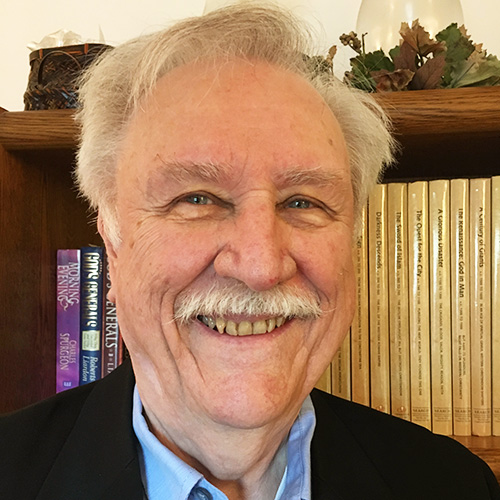
Growing up, my family only went to church on Christmas and Easter.
When I was 13, my mother sent me to confirmation class. Before we took communion for the first time, the pastor told us, “Take the bread and cup, then go back to your pew and pray.” Well, he didn’t tell me what to pray about, so my prayer was one of thankfulness. At that point, I felt God’s arm around me. I was His.
By the time I was in college, however, I had become enamored by pantheist and deist literature. When I met the lovely young woman who was to be my wife, I decided to start a “deep” discussion and asked, “How do you know you’re going to heaven?” I figured I could philosophize about the nature of heaven.
She simply replied, “Because the Bible tells me so.”
Then God suddenly spoke to me: “You’ve never read my Word.” So, I went home that night and started reading through the Bible. Even Leviticus didn’t stop me.
I was almost led away as a young college student, but God pulled me back. Eventually, I became a credential minister, but I still felt I belonged in the university. Now I try to help my students with their questions and encourage them to dig into the Bible. A lot of them grow up in Christian homes but lose their faith in college, and I feel for students confronted with many ideologies.
A couple of my students were attending a church but not getting much from it other than “Jesus loves you.” They were struggling with the idea that “the Bible is just a bunch of fables.” I asked them to start reading the Bible, and then we met weekly and discussed their various questions.
Eventually, my students will ask, “Why do you have so much peace?” or something similar. Then I explain about how I base my truth off of what the Bible says and what Jesus has done.
One time, we decided to walk across campus, praying for it and speaking in tongues. No one paid any attention to us because there are so many languages on campus; they just thought we were foreign students. Now some of them are in leadership in their local churches.
It’s crucial to find out where the student is coming from. A common stance is “all truth is relative.” Gently challenge them: Why do you believe that? If truth is relative, who’s right? How do you decide what is the correct truth?
Eventually, my students will ask, “Why do you have so much peace?” or something similar. Then I explain about how I base my truth off of what the Bible says and what Jesus has done, which grants a peace that transcends understanding.
This isn’t just a conversation I have with my students. For five years, I taught a weekly Bible study on campus with five other professors. Also, when I received the Quimby Award for outstanding achievements in the medical physics field, I quoted Proverbs 25:2—”It is the glory of God to conceal a matter, but the glory of kings is to search out a matter” (NKJV)—in my acceptance speech to over 5,000 medical physicists. Many of the medical physicists actually came up later and thanked me for quoting Scripture.
All of this convinces me that God is bringing people to Himself all over, but particularly people who are searching for answers and really want to dig into something true.


